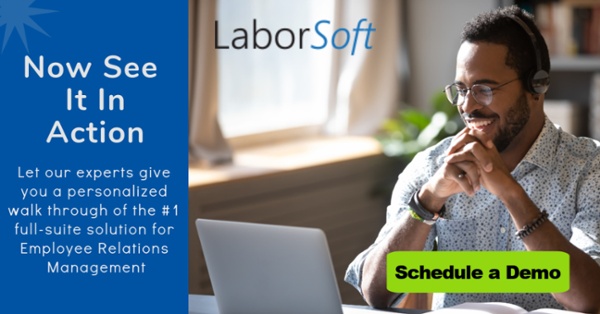Union Management: How to Handle Disagreements or Conflicts
Read Time 3 mins | Aug 20, 2024 | Written by: Frankie Kourtis

How organizations handle union conflicts, negotiations, and grievances consistently makes headlines — and not often for desirable reasons. The United Auto Workers (UAW) recently won a series of negotiations concerning wage increases with US vehicle manufacturers. The International Longshoremen's Union, Trader Joe's, and Commercial Solar Arizona, LLC, are just a few of the dozens of unions winning new contracts with employers in 2024.
Companies and unions working together as partners, rather than adversaries, is the key to managing organizational conflicts as effectively as possible. This is easier said than done, but it always springs from a place of good-faith negotiation.
The employer-union relationship is markedly different from the employee-union relationship, something businesses tend to overlook or ignore when tension escalates. Where the union seeks a resolution in favor of the worker, employers must prioritize the success of the business. Even so, human resources and union relations should always be tempered with empathy, refraining from making accusatory remarks and focusing on identifying the areas of compromise.
Know the Risks — And How to Handle Union Grievances
As union membership and collective power continue to increase, organizations unprepared to handle employee complaints and grievances face various risks, such as:
- Reputational damage to their brand
- The promotion of a negative workplace culture
- Significant revenue losses that could lead to company restructuring or even bankruptcy
The private aerospace company Boeing offers a cautionary union management tale. The International Association of Machinists and Aerospace Workers (IAM) pursued contracts containing better job security and substantial wage increases for its union members. Boeing wavered when discussing IAM's requests, which led to union members passing a strike authorization vote. Rather than negotiating in good faith and venturing into the middle ground of negotiations, Boeing chose to close the communication channel between them and their employees and damage union relations. In addition to the possibility of over 30,000 hourly Boeing workers going on strike in September 2024, the airline is grappling with $1.4 billion in operating losses.
In the U.S., laws protect workers' right to organize. Knowing the best strategies to optimize employee grievance handling begins with recognizing that employees have a legal right to organize and air their grievances to the proper entities. They are also allowed to air grievances on picket lines, on the Internet, and through other media.
3 Union Management Pitfalls to Avoid
Here are three things organizations should never do when dealing with union-management:
- Avoid laying off or firing pro-union organizers in situations where it could be argued the termination was because they are pro-union organizers. The result may be a loss in court, the return of their positions, and fodder for bad PR that your company doesn't need.
- Never make transactional statements that you think will extricate you from "gotcha" moments. Inauthentic behavior can backfire and increase the complexity of negotiating with unions. Remaining neutral yet open to discussing grievances or talks about unionizing is the best way to avoid creating a no-win situation.
- Follow procedures and rules included in U.S. labor laws, collective bargaining agreements (CBAs), and arbitration regulations. A CBA is a legally binding document describing the terms and conditions regarding the employment of union members, and the rights and responsibilities of employers and employees. A company's labor relations and human resource teams must familiarize themselves with CBAs to comply with its terms and conditions.
Streamlining Communications with Union Management
Emotions run high during a contract dispute between unions and employers. Unfortunately, there are potential communication channel problems, such as inaccurate information relayed between the two parties and documentation errors during negotiations. When multiple communication networks exist that are not monitored and consolidated into a single portal, the resulting chaos and misinformation flowing between union management, employers, and employees will likely produce counterproductive results.
Laborsoft offers proprietary software that supports a centralized repository for labor relations data. By utilizing this software as a primary part of handling union grievances, organizations can seamlessly consolidate documents, communications, and case histories that can be used to identify mistakes and recurring issues. Insights from having historical perspectives immediately available can help avoid disputes, prevent employers from making subjective decisions, and lead to non-confrontational discussions.
For more information about our union management software, contact Laborsoft today.


